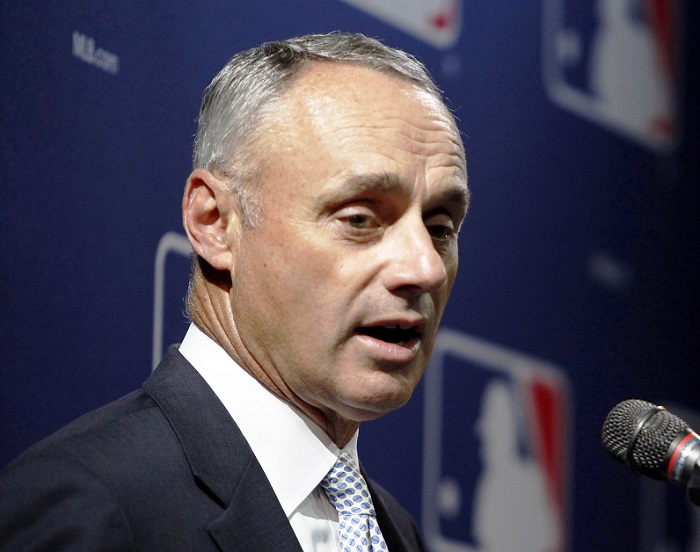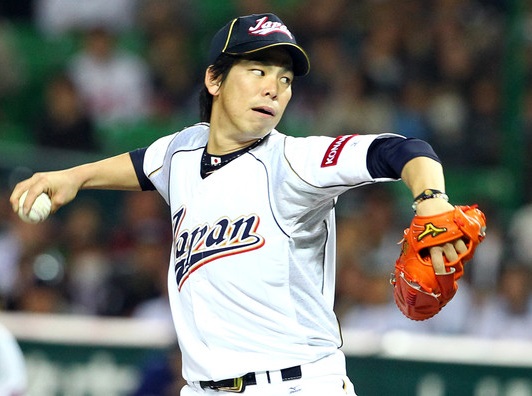As Dodger fans know all too well, opt-out clauses are becoming increasingly popular in today’s game. It is the reason why 2015 NL Cy Young runner-up Zack Greinke is no longer a Dodger and why three-time Cy Young award winner and 2014 NL MVP Clayton Kershaw may not be a Dodger on Opening Day 2019.
“The logic of opt-out clauses for the club escapes me.” – MLB commissioner Rob Manfred
But opt-out clauses are nothing new to Dodger fans. In fact, it was the Scott Boras-crafted opt-out clause that led to the departure of former Dodgers slugger J.D. Drew in 2007 which, in turn, forced then Dodgers general manager Ned Colletti to overpay Juan Pierre for a panic-induced five-year / $44 million contract – a move that met with mixed reviews. Although Pierre batted a very respectable .294 in his three seasons in Los Angeles before being traded to the White Sox in 2010, his weak throwing arm was often challenged by opposing base runners and cost the Dodgers quite a few runs that otherwise might not have scored.
During a recent interview, MLB commissioner Rob Manfred expressed his thoughts on what he perceives as player-friendly / owner unfriendly opt-out clauses.
“The logic of opt-out clauses for the club escapes me,” Manfred said. “You make an eight-year agreement with a player. He plays well, and he opts out after three. You either pay the player again or you lose him.
“Conversely, if the player performs poorly, he doesn’t opt out and gets the benefit of the eight-year agreement,” added Manfred. “That doesn’t strike me as a very good deal. Personally, I don’t see the logic of it. But clubs do what they do.”

MLB commissioner Rob Manfred is clearly not a fan of opt-out clauses.
(Photo credit – Ricardo Arduengo)
But what recourse do teams hoping to land top-tier free agents have when these players are demanding opt-out clauses or threatening to take their services elsewhere to teams that are willing to give them an opt-out clause after only two or three seasons? Leave it to brilliant minds of baseball analytic gurus Andrew Friedman and Farhan Zaidi to come up with a possible answer to this seemingly impossible question.
On Thursday evening it was being widely reported that the Dodgers had come to terms with Japanese superstar right-hander Kenta Maeda from Nippon Professional Baseball’s Hiroshima Carp – a move that will cost the Dodgers an MLB-imposed $20 million to cover the posting fee in addition to whatever contract the soon-to-be 28-year-old Osaka, Japan native agrees to.
And then on New Years Day details of the rumored contract – although unconfirmed – began flooding the various social media networks with reports that Maeda’s contract is for a guaranteed eight-year / $25 million for an average annual value (AAV) of $3.125 million. Needless to say, if true, this is a great deal for the Dodgers.

Although the exact details of Maeda’s eight-year contract have yet to be officially announced, it appears that it favors both Maeda and the Dodgers. (Photo credit – Koji Watanabe)
The reported deal does have a caveat to it, however – one that definitely favors Maeda. Supposedly, the eight-year deal includes performance incentives believed to be worth $10 to $12 million per year and are (again supposedly) easily attainable. As such and again if true, Maeda would potentially be in line to earn as much as $120 million over the life of the eight-year deal. In essence this means that the crafty right-hander – who reportedly has several different and very effective pitches in his arsenal – will be paid for what he does, not for what he did in the past; a concept that has long eluded team owners who sign those multi-million-dollar paychecks each year.
Although there has been no mention that Maeda’s contract will include an opt-out clause, even if it does, the guaranteed $25 million over an eight-year period makes him extremely tradable – something that you most likely won’t see with guys like Zack Greinke, David Price, Jordan Zimmermann or Johnny Cueto.
Simply put, if reports about Kenta Maeda’s deal with the Dodgers are accurate, it could very well set a precedent for future big-name / high-dollar free agent signings – one that might even provide true competitive balance throughout Major League Baseball.




 January 3rd, 2016 at 6:00 am
January 3rd, 2016 at 6:00 am  by Ron Cervenka
by Ron Cervenka  Posted in
Posted in 

I sort of understand the reasoning behind opt out clauses and don’t see any way it helps owners. Greinke is a classic example. Rather than an opt out clause why not just make the contract times shorter?
If there is going to be an opt out clause there should also be a way for owners to adjust the amounts based on performance; up or down. If a player doesn’t hit the numbers he signed up to produce, reduce the amount the next year.
Conversely like this reported contract it’s good to have incentives for more money, a win for everyone; owners, player, fans.
Guys like Boras seem to have all the owners in a vise and can get whatever they want. It’s like the negotiations only go one way.
I get it, if they don’t get what he wants the player tries another team…. etc. Of course if the owners agree to tell him and his guy to bug off they get busted for collusion or something. Someone some where will eventually grow a pair and put a stop to this non-sense. In the meantime I hope to see contracts like become the norm. A player who substantially leads a team to a championship will have the blessing of fans no matter how much they get paid.
Good stuff. “Widely reported” though? Reports beyond the 1 Bud Light Rep, Christopher Meola, source? Anywhere else?
You are kidding, right?
I think F&Z just aren’t going to give big, long contracts any more, or at least rarely.
Incentives are a great way to go making each year a contract year for a player. A contract like Maeda’s also protects the team from injury.
I think I like the “opt out” clause such as Kazmir has. If he does well and leaves he is certainly replaceable. If he leaves the Dodgers get a good draft pick as compensation. Plus deferring his salary for three years in this case is a good thing in my opinion. It makes him tradeable if he needs to step aside for a youngster or does not live to to expectations.
With Maeda and the structure of his contract, if as reported, as pointed out also makes him tradeable down the road.
These contracts are both player and team friendly. The player gets compensated well and the team is not strangled by unwieldy contracts that are large in dollars and in length.
I don’t think Scott Boras and other agents are going to hold F&Z hostage. I think the pendulum may switch as other front office personnel see there are other ways to do things.
“I don’t think Scott Boras and other agents are going to hold F&Z hostage. I think the pendulum may switch as other front office personnel see there are other ways to do things.”
Exactly.
Baseball offers me many surprises and this contract, if it is at all official, really surprises me.
If this contract is official, will the players’ union go to court to get it overturned? I’m in favor of tying some portion of a player’s salary to performance. Guys like Kris Bryant should get more than the league minimum; players like Kemp whose best days are behind them should not be making $20 million. I think MLB may need to cap the maximum contract length. Maybe they should be like the NBA and let players’ current teams offer an extra year.
Opt-outs are disruptive, IMO. I remember the JD Drew fiasco, another Boras stab-in-the-back. And now Greinke is gone. On the other hand, the Dodgers and Giants are probably hoping Kazmir and Cueto pitch well enough to opt out in the next year or two.
I think that the Dodgers logic in giving opt out clauses may be quite creative and beneficial for the following reasons:
1) The player will only opt out if he has a great season whereby he believes that the market will pay him more than if staying with the Dodgers. While this may seem like a negative for the Dodgers, let’s not forget the benefit to the team that comes with the great season the player has. It is quite an incentive for the player to have that great season.
2) If the player opts out, he becomes a free agent with a compensatory draft pick going to the Dodgers, assuming they make a qualifying offer. The Dodgers already have 3 of the top 36 picks in the 2016 draft, which could become 4 picks if Kendrick signs elsewhere. There is no doubt that the front office is focused on the future and creating a farm system that will produce the stars of the future.
Those are probably two of the best arguments in favor of opt-out clauses I’ve heard yet.
As fans I think we tend to focus only on the negatives of opt-out clauses because (as you noted) we only notice them after the player has a great season – like Zack Greinke and J.D. Drew. That being said and in the big scheme of things, there really haven’t been all that many of them until recently. It will be interesting to see how they begin to pan out over the next few seasons.
Thank you for your insight and input.